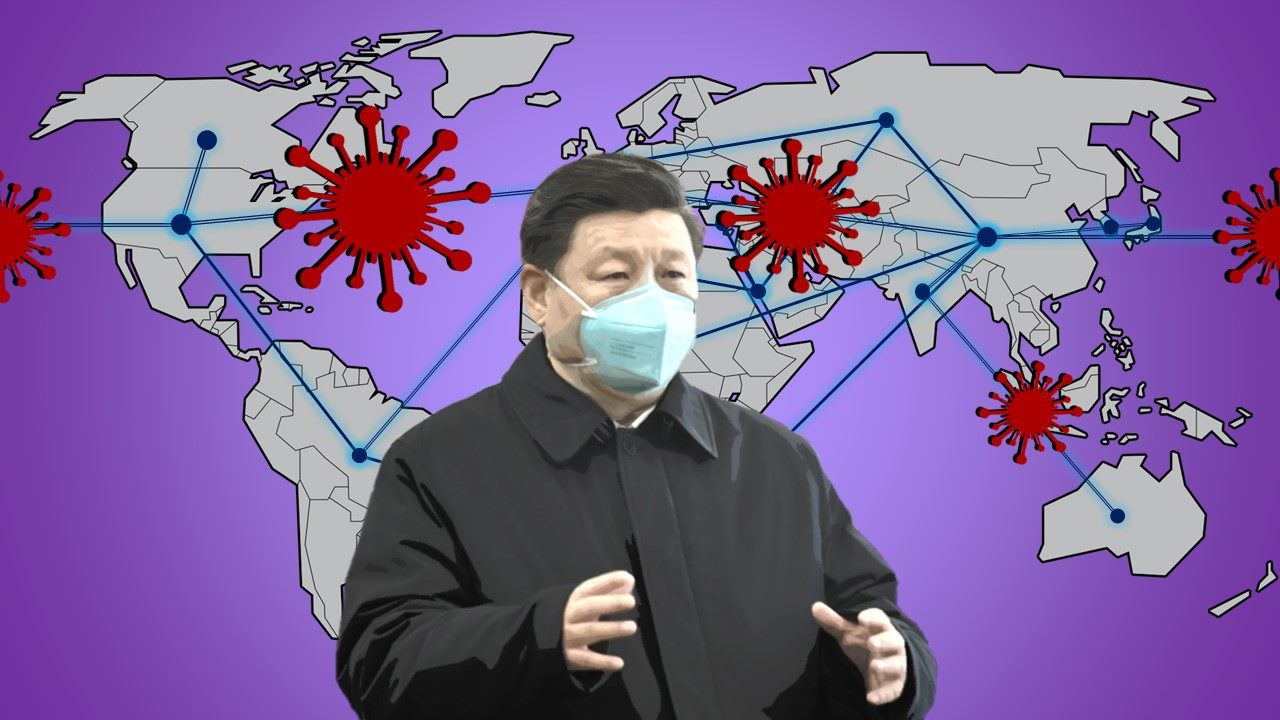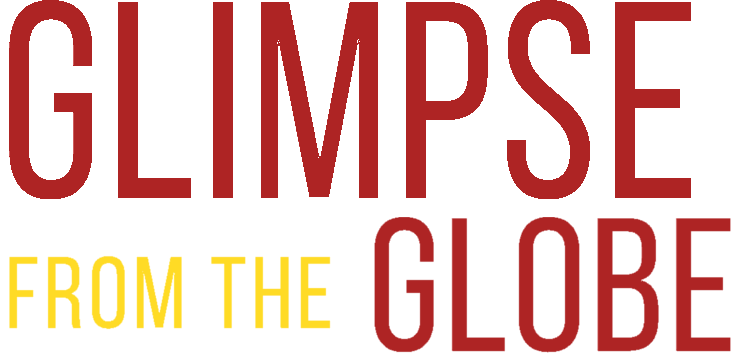The scene could not be more striking. Right in the middle of March, Krabi airport, Thailand’s tourist jewel, is half deserted. Every tourist roaming the halls waiting for their flight is wearing a mask. A shopkeeper casts a disheartened look towards the exit, hoping to see the crowd of tourists who, up until a few months ago, would clean out all the shops.
Coronavirus preys on everyone’s mind in Thailand. Upon arrival at the Krabi airport, medical screenings and distribution of hand sanitizer have become a systematic procedure. The same goes for those who want to take a ferry to the world-famous Phi Phi Islands. With all these sanitary checks, the Thai authorities show they don’t take the situation lightly. Given the consequences of the coronavirus outbreak on the country’s tourist activity, it is easy to understand why.
The tourist industry is going through a staggering crisis. In South-East Asia, where the authorities were the first to react in the face of the outbreak, flights connected to China have been significantly reduced or canceled, from January 22 onwards. On January 25, Singapore quarantines any individual having travelled to mainland China or Taiwan. Problem is, the Chinese account for most of the tourism revenues of the area – the Chinese middle class is made up of 400 million people. As weeks go by, more and more countries have air connections to their airport blocked. After China, it is the turn of South Korea, the North of Italy and Iran to be banned by the other countries of the area. Flights are drastically reduced, as there aren’t enough passengers. Consequence: tourism collapses. According to the UNWTO (UN Word Tourism Organization), the fall in tourism in the first half of 2020 could cost up to three percentage points of growth of world tourism, namely a $30 billion loss. Countries like Singapore or Malaysia even risk a recession in 2020 because of this fall in revenues.
Coronavirus hits the tourism sector hard, while the epidemic starts spreading outside of China.
A game changer in globalization?
What Covid-19 entails, is not just an unprecedented crisis: the virus questions the very way our globalization works. The French Minister for Economic Affairs, Bruno Le Maire, didn’t hold back when he stated on February 25: “the coronavirus epidemic in a ‘game changer’ in globalization”. He asserts the same idea a few weeks later: “there will be, in the history of world economy, a before and an after coronavirus”. He is probably right.
Globalization represents a process through which trade in goods and services, as well as capital transactions and exchanges between men and cultures grow on a world scale and generate ever-increasing interactions between regions of our planet. This process takes different shapes: flows of funds and information, international migration, transport, global value chains… Although this historical phenomenon started in the 1880s, it accelerated with the financialization of the economy and has reached an unprecedented level in the 21st century.
The role global interconnexion plays is highlighted when you compare the coronavirus epidemic with another crisis, which occurred at the beginning of the century and clearly presents some similarities: the SARS. Not unlike the coronavirus, the SARS starts in China, but it is much more contagious: while the Covid-19 has a transmission chain of 3 (one infected individual contaminates 3 other people), the SARS has one of 7.
Comparison between the spread of the coronavirus and the one of the SARS
And yet, when you compare the spread of the two viruses, you can see that coronavirus is the one that spread exponentially. How can this contradiction be explained? There are probably two different reasons. The first one is China’s new position in the current globalization, may it be regarding global value chains or international mobility. In 2003, China barely existed on global markets. Nowadays, our goods are so “global” that they inevitably contain Chinese components. Or, when it’s not the case, their conception or production probably required a European, American or Japanese executive to go to China… The second reason is the democratization of transport, which shows our “addiction to global mobility”. Every day, several flights lasting only 3 hours would link Wuhan and Singapore; more than a million Chinese from Wuhan reportedly travelled in South-East Asia for the Chinese New Year (the weekend of January 25-26) thanks to low-priced tickets…
The flow of information bespeaks even more the intensity globalization has taken. Since December 31, news channels and newspapers mention coronavirus on a daily basis and don’t hesitate to update their news in real time. May you be in California, South Africa or India, the Covid-19 crisis is closely and thoroughly monitored, without any delayed information. Real-time news feeds are an undeniable advance for society. Let’s trace back the chronology in order to realize that: on December 31, China informs the WHO that an unidentified virus has been noticed on its territory. The following day, the Wuhan market closes down. On January 3, passengers arriving from Wuhan to Singapore have their temperature checked. On January 7, the Chinese authorities declare having identified the virus, named COVID-19, and two days later, its genome sequence is broadcasted in the whole world. In a record time of 10 days. In comparison, it took several months for China to acknowledge the existence of the SARS and to announce it publicly in 2003.
What kind of deglobalization are we heading to?
To no one’s surprise, the passions coronavirus raised haven woken up the ghosts of deglobalization. Jean Messiha, a representative for the French ‘Rassemblement National’ (RN), blames the extent of the crisis on globalization: “This virus was imported, it was brought here by the globalization”. A web user replied ironically to him on Twitter: “At the RN, they want exclusively French viruses…”.
Globalization has indeed been criticized for years, as it has become asymmetrical and got out of our control. When China’s position in our new world configuration is not the one being questioned, fingers are pointed at rising inequalities or climate change. Many are the economists and politicians who thus plead for a deglobalization, or at least try to find alternatives. Maybe the coronavirus crisis gives us the opportunity to think about new forms of globalization. After all, the word crisis does mean both “danger” and “opportunity” in Chinese (危機). What would a fairer globalization look like then ?
First of all – and what a paradox! – the coronavirus crisis does wonders for the planet. An image published by NASA went viral on social networks. It shows the level of pollution in China before and after the epidemic started. “A massive constriction of global travel and a greater reliance on local products may be required to move toward a low-carbon future. The virus may have cost lives, but the grounding of planes and the shutting of factories has saved more lives by reducing pollution” state Australian economists. They feel the crisis opened a window opportunity in favor of a greener planet.
The pollution level before and after the beginning of the epidemic. From NASA
I don’t think coronavirus is cause for cheer despite its impact on global warming. Nevertheless, one can’t deny that this picture, and its contrast, makes us reflect on our contradictions when it comes to preserving our planet. It reminds us that our globalization pollutes, and that the heart of this pollution lies in the “workshop of the world”, China. I am writing these words at a time when most of the countries having signed the Paris Agreement struggle to meet the goals they defined in December, France included.
The second aspect of globalization the coronavirus questions is the international division of labor (IDL), which takes the shape of a series of global value chains (GVCs). To explain how GVCs work, nothing simpler: each country takes on a specific part of the design, fabrication and distribution process of a product or service, depending on the raw materials, skills and companies it harbors. And yet, each part of that process doesn’t provide the same added value. Thus, it is better to be a product designer in the Silicon Valley than an assembler in Bangladesh. On top of that, the production processes from which most of the products originate are tightly interlocked as an effect of the IDL. Everything is connected. Almost everything goes through China, which is at the heart of this industrial globalization. As a result, our globalization is asymmetrical: every crisis happening in China disrupts the production lines and thus the world – while conversely a crisis taking place in Europe or South America wouldn’t significantly affect China. The disruption of production in China, which was brought to a halt in January and thus affected the whole production process of western companies, has reminded us how polarized the balance of power can be. With that in mind, it is no surprise that Bruno Le Maire called for a change in China’s position in production lines, in order to shape a globalization that would “respect the sovereignty of nations”. But behind his words is hiding a growing wariness of a phenomenon that disregards nation-states and political sovereignty.
However, the global production system is not the only vector of the Chinese ubiquity. With this crisis, many countries have learned the hard way how dependent they were on China. The United States for instance have realized the aberrant extent of their dependence on the Middle Kingdom in the pharmaceutical field: no less than 97% of American antibiotics come from abroad, from India and China for the most part. Cambodia, and Angkor Wat in particular, face the same problem: 5 million tourists visit the famous Khmer temples each year. With this tourism came massive and unprecedented investments from China, which funded new hotels, casinos and festive events meant for the Chinese clientele only. The sight of an empty Angkor Wat gives Cambodia the opportunity to reflect on its unhealthy relationship with its neighbor, all the more as many experts openly criticize the Chinese control on the country and the threat it represents for the Khmer culture.
Lidewij Edelkoort, a consultant in design and fashion, stated in an interview: “the coronavirus offers a blank page for a new beginning”. According to her, the epidemic will lead to a global recession of unprecedented magnitude, but will give humanity the opportunity to “reset” its guiding values. Without being this radical, one can’t deny that this crisis has shaken up our habits and behaviors. International fairs are carried out online, if they haven’t been canceled. Handshakes are not recommended. The consumer frenzy seems to be fading. Our behavior is changing, and we have this unique opportunity to reassert some of our values. If the elderly are the most at risk, let’s show them solidarity. If the best defense against this virus is our public health system, let’s invest in it. If the best protection is doing basic hygiene gestures, let’s be civic and responsible, and let’s listen to science experts.
Finally, it is not so much globalization that is behind this unprecedented sanitary crisis, the likes of which we haven’t seen in Europe in a century. Rather than looking for scapegoats to put the blame on, we’d better learn from the current circumstances and understand one cold hard fact: our globalization isn’t broken, it is only fragile. And it is up to us to strengthen its foundation and go towards a world that is more united and inclusive.
Further readings on the subject :
For a precise timeline of the events :
Coronavirus: A timeline of how the deadly COVID-19 outbreak is evolving
The press encourages a change in behaviour:
https://www.vox.com/identities/2020/3/9/21166475/coronavirus-covid-19-outbreak-health-hand-washing
Lidewij Edelkoort’s interview:
Coronavirus offers “a blank page for a new beginning” says Li Edelkoort








